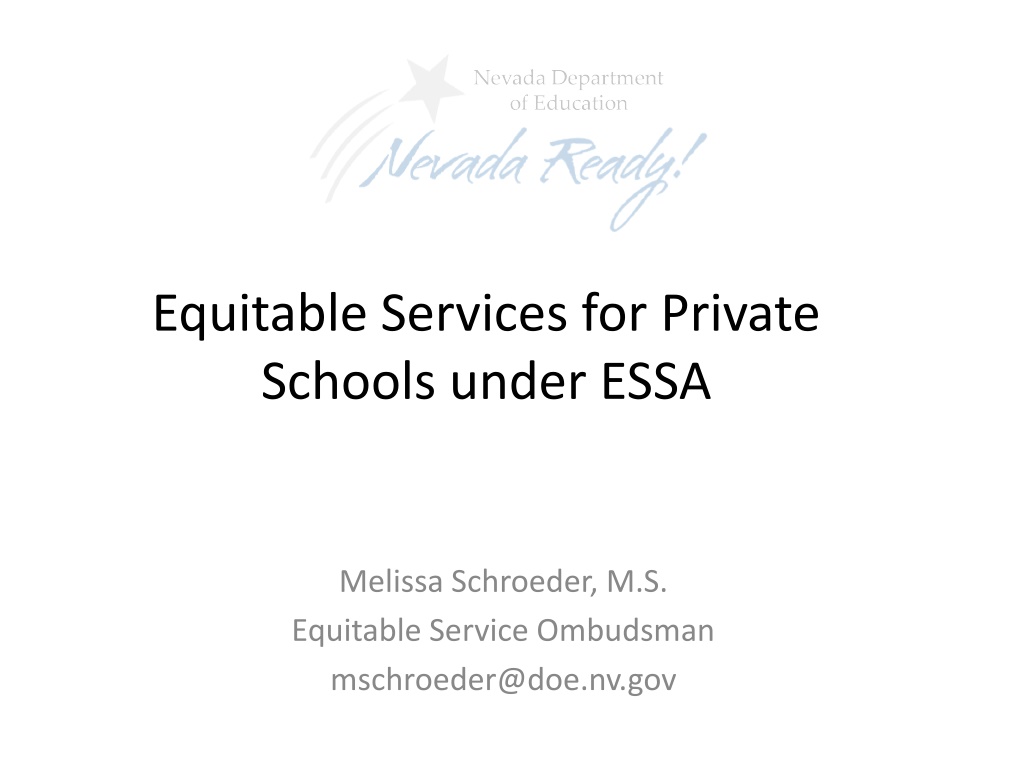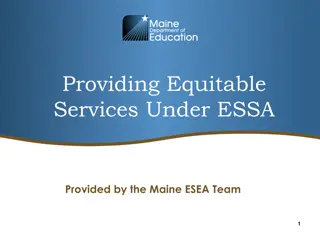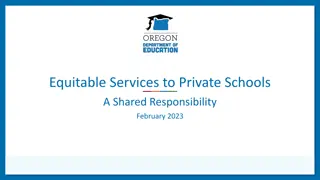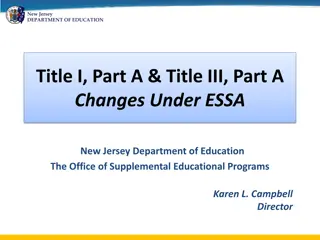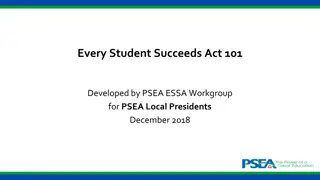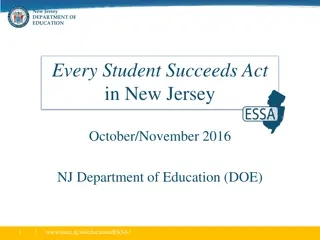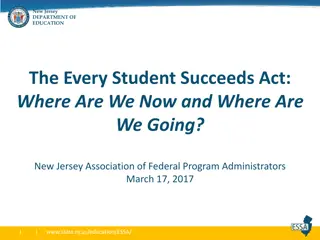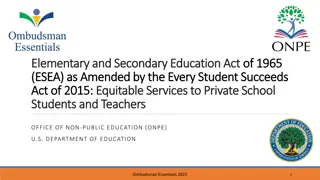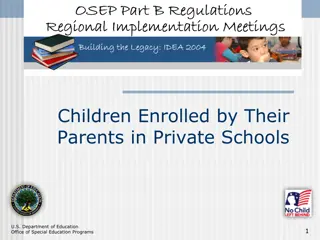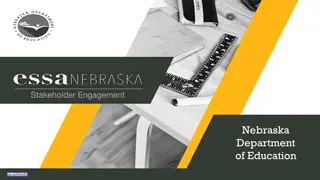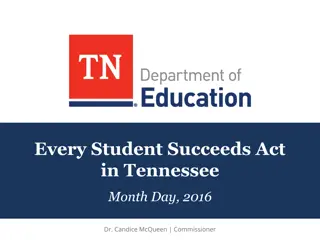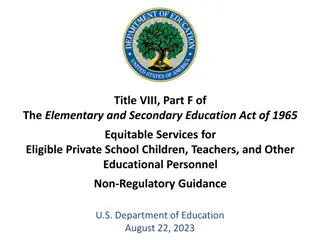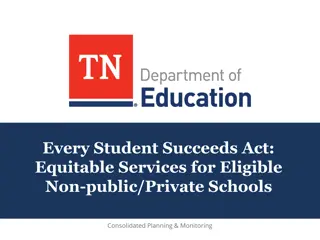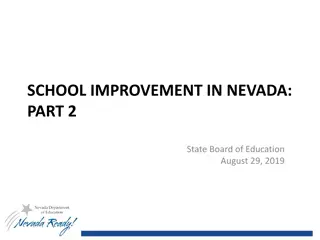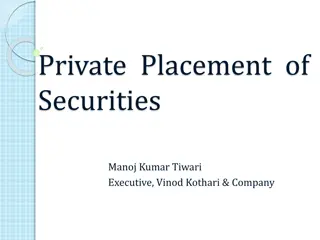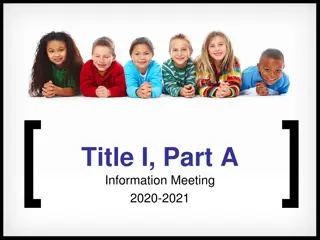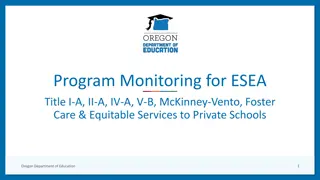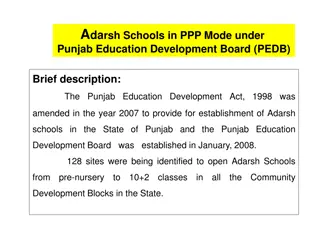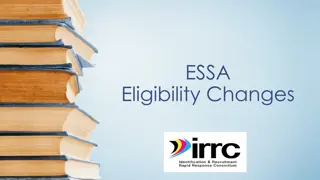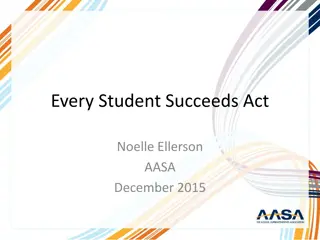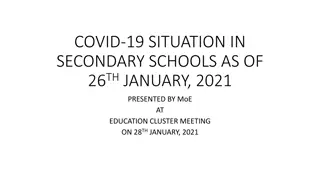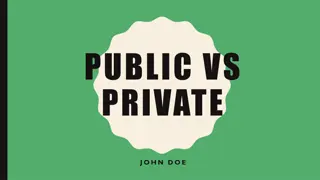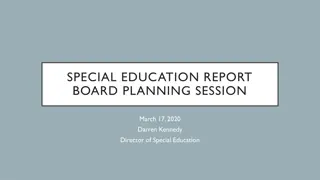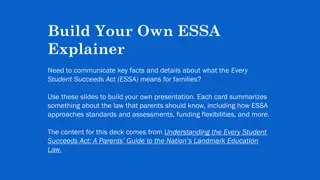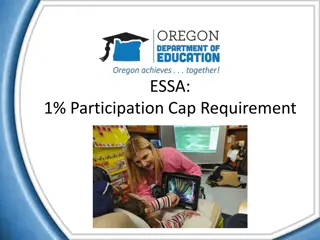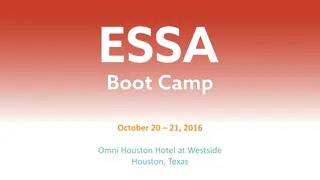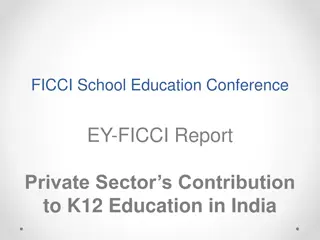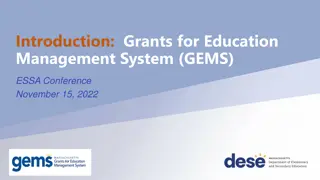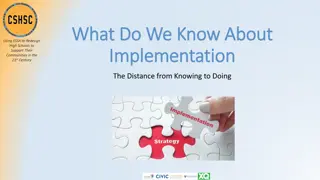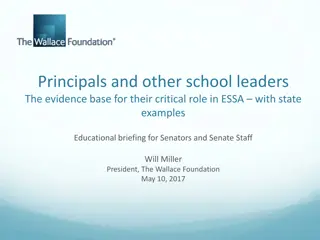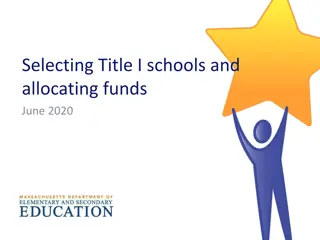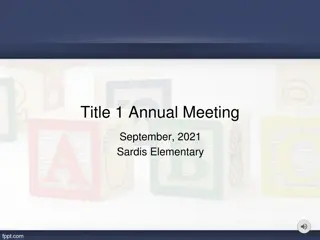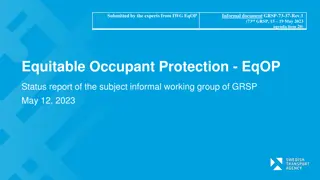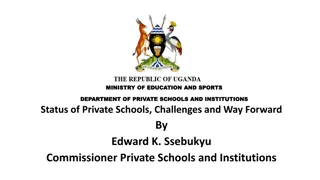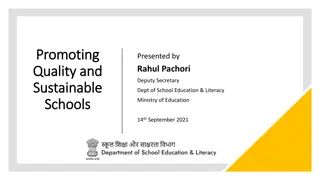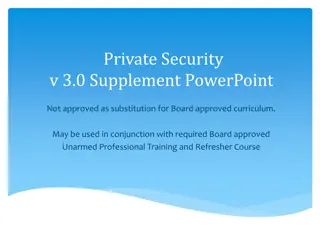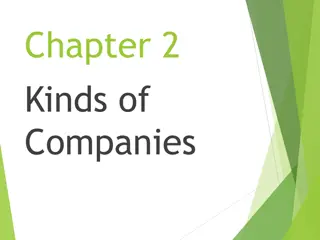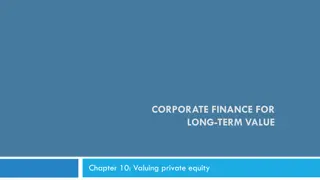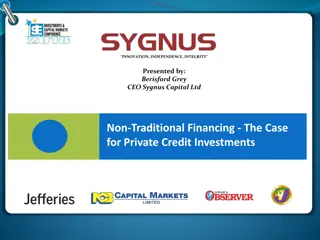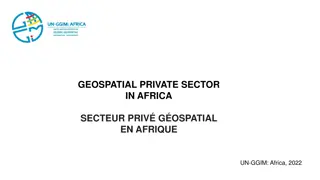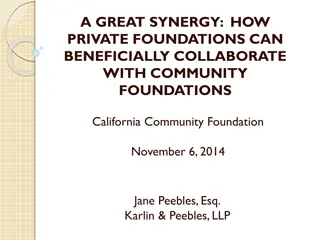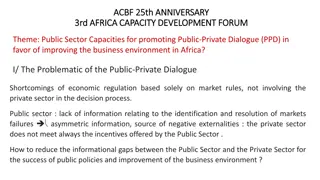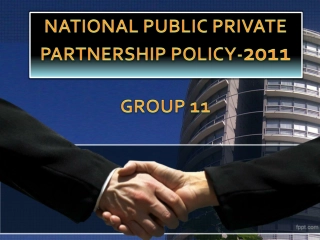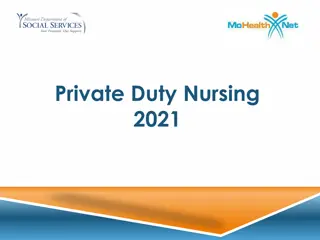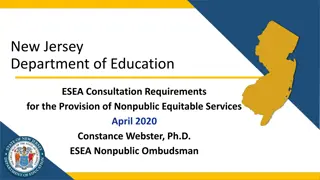Understanding Equitable Services for Private Schools under ESSA
Equitable Services for Private Schools under ESSA ensures fair educational benefits for private school children, teachers, and personnel compared to public schools. Requirements cover various programs like Title I and Title IV, with an ombudsman role to enforce compliance. ESSA mandates separate provisions to ensure equity in services for eligible private school individuals and families, building upon previous NCLB regulations.
Download Presentation

Please find below an Image/Link to download the presentation.
The content on the website is provided AS IS for your information and personal use only. It may not be sold, licensed, or shared on other websites without obtaining consent from the author. Download presentation by click this link. If you encounter any issues during the download, it is possible that the publisher has removed the file from their server.
E N D
Presentation Transcript
Equitable Services for Private Schools under ESSA Melissa Schroeder, M.S. Equitable Service Ombudsman mschroeder@doe.nv.gov
Equitable Services Educational services and other benefits provided under this section for private school children, teachers, and other educational personnel shall be equitable in comparison to services and other benefits for public school children, teachers, and other educational personnel participating in the program and shall be provided in a timely manner.
Equitable Services Requirements Equitable services requirements for non-public/private schools apply to programs under 1117 or 8501: Title I, Part A (Improving Basic Programs) Title I, Part C (Migrant Education) Title II, Part A (Supporting Effective Instruction) Title III, Part A (English Language Acquisition) Title IV, Part A (Student Support & Academic Enrichment) Title IV, Part B (21stCentury Community Learning Centers)
Overview of ESSA Changes ESSA includes separate provisions governing equitable services for eligible private school students, teachers and other educational personnel, and families. Many requirements are maintained from the No Child Left Behind Act (NCLB). ESSA includes many similar changes to the equitable services requirements under both Title I and Title VIII; others changes are different.
Equitable Services Ombudsman Purpose To help ensure equitable services and other benefits for eligible private school children, teachers and other educational personnel, and families, the department must designate an ombudsman to monitor and enforce ESEA equitable services requirements under both Title I and Title VIII. ESSA 1117(a)(3)(B) and 8501(a)(3)(B)
Equitable Services Ombudsman Role The NDE equitable services ombudsman is designated as the agency representative for ensuring that equitable services requirements under Titles I and VIII are met by districts. The ombudsman is the primary point of contact for addressing questions and concerns from non- public/private school officials and school districts regarding equitable services.
Equitable Services Ombudsman Role Continued Provides technical assistance Establishes a process for receiving documentation Participates in monitoring activities Serves as a liaison to resolve equitable service complaints
Consultation Requirement Goal of consultation: agreement between the school district and appropriate private school officials on how to provide equitable and effective programs for eligible private school children.
Consultation Topics The ongoing consultation process must discuss: how the proportion of funds allocated under Title I for equitable services, and/or how the amount of funds available for Titles II, III, and IV for equitable services are determined; for Title I, the method or sources of data that the LEA will use to determine the number of private school children from low-income families residing in participating public school attendance areas; whether to coordinate funds available for Title I equitable services with funds available for equitable services required by Title VIII;
Consultation Topics Continued the size and scope of equitable services to be provided to eligible private school children, teachers, and other educational personnel and the amount of funds available for those services; whether the LEA responsible for providing equitable services will provide the services directly, through a separate LEA, or through a third-party contractor; whether to provide equitable services to eligible private school children by pooling funds or on a school-by-school basis; how the students' needs will be identified;
Consultation Topics Continued what services will be provided, including how, when, where, and by whom; and how decisions about the services will be made, how the services will be assessed, and how the results of the assessment will be used to improve those services.
Consultation Before the District Makes Decisions Consultation shall occur before the school district makes any decision that affects the opportunities of eligible private school children, teachers, and other educational personnel to participate in programs and shall continue throughout the implementation and assessment of activities under this section.
Consultation Timeline Consultation is an ongoing process that should take place throughout the course of the school year. Timely and meaningful Consultation should begin for the following school year in late fall LEAs have the following deadlines: January 31stto submit Private School Initial Consultation and Notification of Intent to Participate forms to NDE May 15thto submit Affirmation of Timely and Meaningful Consultation forms for each program in which a private school is participating Consult Appendix A in the Equitable Services Guidance Document for a detailed consultation timeline example.
Consultation: Disagreement over Use of Contractors If the school district disagrees with the views of the private school officials on the provision of services through a contract, the school district must provide to the private school officials a written explanation of the reasons why the school district has chosen not to use a contractor.
Written Affirmation Each LEA shall maintain in its records, and provide to the department in their consolidated funding application (related documents tab), a written affirmation signed by officials of each participating private school that the meaningful consultation required by this section has occurred. There is a separate form for each program Submit forms only for programs in which the private school is participating
Use of Title I Funds An LEA must only use Title I funds to meet the needs of Title I participants. Consequently An LEA cannot use any Title I funds to meet the needs of the private school or the general needs of the private school children. Private schools cannot have school-wide programs. No funds can go directly to private schools.
Title II, Part A Equitable Services Per-pupil basis The amount available for all public and private schools students enrolled in participating private elementary and secondary schools in areas services by the LEA Regardless of student s residency
Timing & Delivery of Services Services for private school children must begin at the same time as services for public school children Services may be delivered directly, through a private company or LEA, may be onsite at the private school (with safeguards), and must be neutral, secular & nonideological
LEA Control over Services LEA plans, designs, and implements program LEA controls all funds, title to materials, equipment, and property purchased LEA administers funds, materials, equipment, and property All of this happens through consultation
Right to File a Complaint Non-public/private schools may file a complaint if they believe that: Timely and meaningful consultation did not occur; The LEA did not give due consideration to the views of the non-public school officials; or The funds generated or services provided are not equitable
Complaint Form The complaint form is available on the Equitable Services Ombudsman website: http://www.doe.nv.gov/Ombudsman/Equitable_Service_Ombudsman/ There is also a sample of the complaint form in Appendix D of the Equitable Services Guidance Document
Right to File a Complaint The private school official must complete the complaint form and email it directly to the ombudsman and to the LEA. The LEA must forward the appropriate documentation to the ombudsman in response. The state education agency (NDE) will provide a written resolution to a complaint within 45 days.
State Services The department (NDE) will provide equitable services directly or through contracts with public or private agencies, organizations, or institutions if appropriate private school officials have: Requested that the department provide such services directly; and Demonstrated that the LEA has not met applicable equitable services requirements as prescribed by the department.
New Draft Guidance USDOE released draft guidance on equitable services to private school students, teachers, and families this spring Includes additional guidance on consultation, allocation of funding, and obligation of funds
Support and Technical Assistance Additional technical assistance regarding equitable services is available through NDE s Office of Student and School Supports via the Equitable Services Ombudsman: Melissa Schroeder mschroeder@doe.nv.gov 702-486-8259
